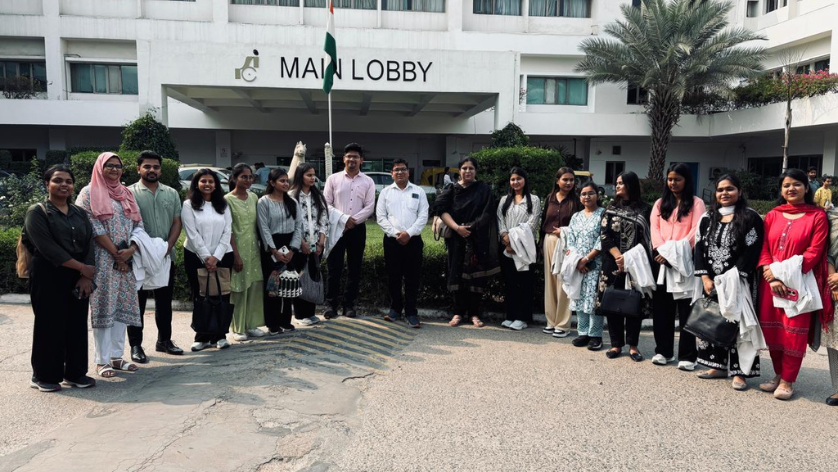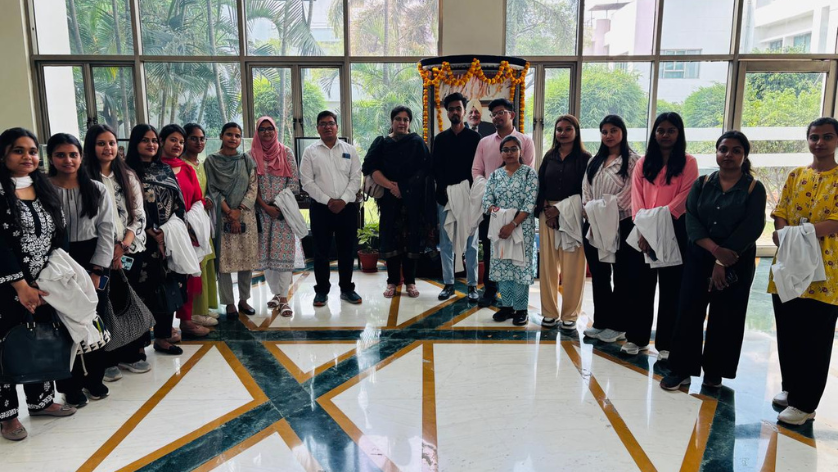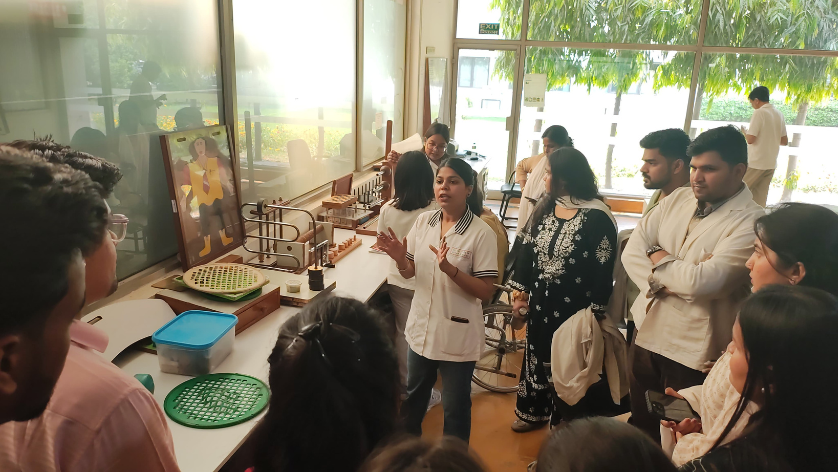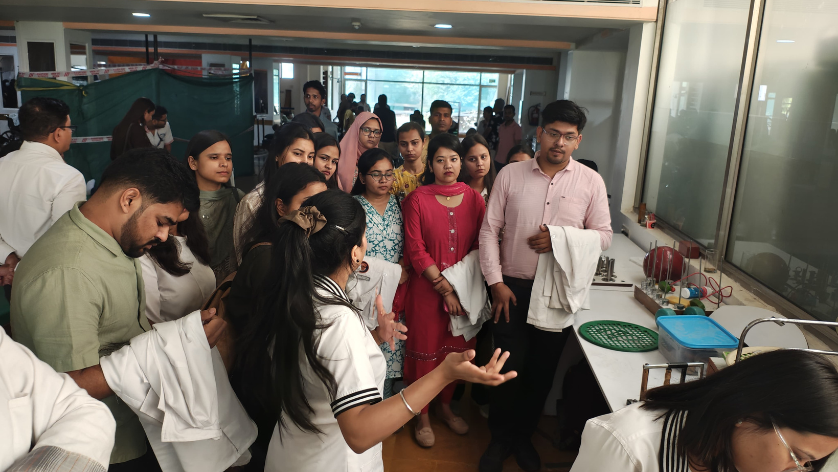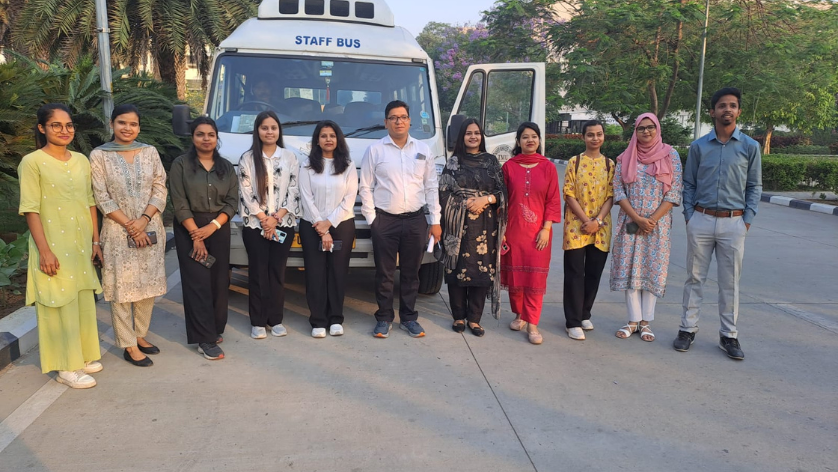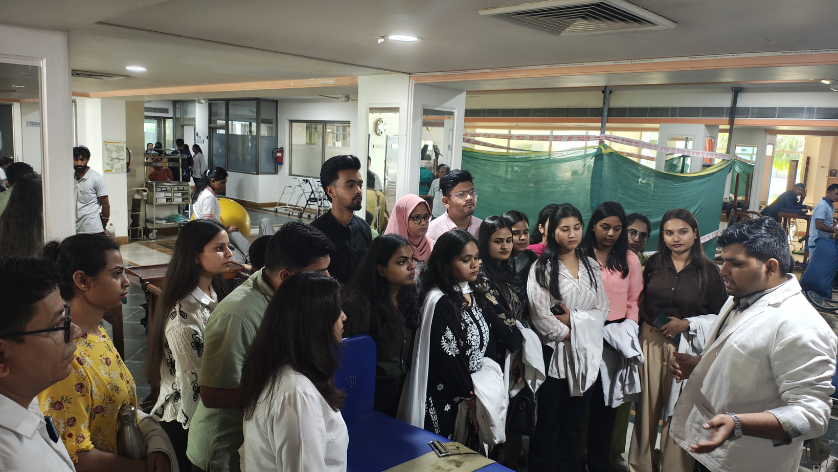TMU MPT Students Undertake Clinical Visit to Indian Spinal Injuries Centre, New Delhi
Teerthanker Mahaveer University’s Department of Physiotherapy organised a one-day educational visit to the prestigious Indian Spinal Injuries Centre (ISIC), Vasant Kunj, New Delhi, on 15th April 2025. This academic-industrial initiative aimed at enhancing clinical knowledge and practical understanding of advanced rehabilitation in spinal cord injury management among postgraduate students pursuing a Master of Physiotherapy (MPT).
Led by Prof. Shivanee M. Kaul, Head of the Department of Physiotherapy, and Mr. Harish Sharma, Associate Professor and visit coordinator, the team included 18 students and 2 faculty members, making a total of 20 participants.
Objectives of the Visit: Clinical Learning and Exposure to Multidisciplinary Rehabilitation
The primary aim of the educational tour was to offer MPT students firsthand exposure to modern rehabilitation techniques and multidisciplinary patient care approaches. It was designed to:
- Observe advanced physiotherapy and neurorehabilitation practices.
- Understand the application of state-of-the-art technologies like robotic gait training and virtual reality-assisted therapy.
- Promote evidence-based and patient-centred care in clinical settings.
- Bridge the academic-clinical gap by aligning theoretical knowledge with real-time practices.
Activities and Learning Highlights from ISIC
The visit commenced with a warm welcome and an insightful orientation session by ISIC staff, introducing the hospital’s vision and operational structure. Students then explored critical sections of the facility, focusing on:
- Rehabilitation and Physiotherapy Units
- Early intervention physiotherapy methods
- Robotic-assisted gait training, including the Lokomat system
- Virtual reality-based rehabilitation modules
- Body-weight supported treadmill therapy
- Hydrotherapy and aquatic rehabilitation practices
- Assistive device fabrication units
The exposure to these innovative treatment modalities provided students with a holistic understanding of neurorehabilitation, particularly for patients with spinal cord injuries.
Outcome: Professional Growth and Evidence-Based Insight
This educational exposure proved to be a transformative experience for the participants. Students gained clarity on the role of multidisciplinary collaboration in managing complex spinal injury cases while observing real-time physiotherapeutic applications grounded in research and technology.
The experience has notably enhanced students’ commitment to clinical excellence and inspired them to incorporate evidence-based, patient-centric practices in their future roles as physiotherapy professionals.
Conclusion and Acknowledgements
The Department of Physiotherapy at TMU extends sincere gratitude to the Indian Spinal Injuries Centre (ISIC) for their support, guidance, and hospitality throughout the visit. The enriching experience aligns perfectly with TMU’s mission to offer quality healthcare education integrated with practical learning.
This visit not only augmented students’ clinical insight but also instilled a deeper respect for multidisciplinary healthcare systems that combine compassion, science, and innovation in patient recovery.


